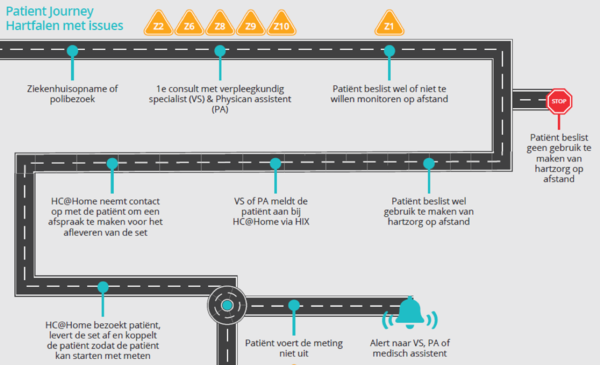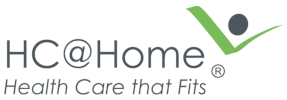Heart Care at a Distance
In this project Universities of Applied Science Windesheim and Saxion perform research on the telecare service Heart Care at a Distance. Heart Care at a Distance, including technology, ways of working, protocols, support and logistics, was developed by Hartcentrum Isala and the company HC@home. During development the involved professionals (care, IT, logistics) developed along, but the acquired knowledge and experience has remained implicit. For successful professionalisation and upscaling of the service these must be made explicit, to be evaluated and developed further.
The number of patients in the Netherlands who have an indication for cardiac rehabilitation amounts to more than 45,000 annually. Approximately 75,000 people undergo one or more invasive procedures every year. Heart Care at a Distance makes it possible to give patients with a chronic illness control over part of their treatment in their own home.
To obtain the above mentioned project results, the project team performed research from two perspectives: the patient’s and the professional’s. The project had an iterative approach in which different qualitative methods were used. First regular care was observed by joining the professionals and patients during the meetings in the hospital. Patients were interviewed at home and asked to use the cultural probe: they were invited to take pictures, keep a diary, make drawings or ‘send’ postcards. In this way rich data was gathered on how heartcare at home influenced their lives. Then the results of the cultural probe in a second interview was discussed. Also, the professionals were interviewed. In these interviews the analysis of the observations and cultural probes was further deepened.
The first results are two customer journeys for both clinical path: Chronic Heart Failure (CHF) and Cardiac Rehabilitation (CR). During the project it was noticed how the journeys were influenced by the new knowledge care professionals gained while monitoring patients at a distance. The data that was gathered, showed how professionals’ knowledge and experience helped them to deal with all the individual differences in patient care. This knowledge became clear while discussing the hindrances and choices they encounter. These hindrances and choices were named ‘issues’ and were embedded in the patient journey.
Furthermore the routes provide insight into Heart Care at a Distance and facilitated the discussion of desired or required changes. The second result of the project consisted of three profiles for the professionals working with Heart Care at a Distance: nurse specialist, physician and IT support. These profiles represent the tasks and skills required for these (care) professionals which can serve the purpose of validation of portfolios of potential co-workers to assess their required education. With the use of these profiles ‘Heart Care at a Distance’ can deploy targeted employees who are ready to scale up this care.






